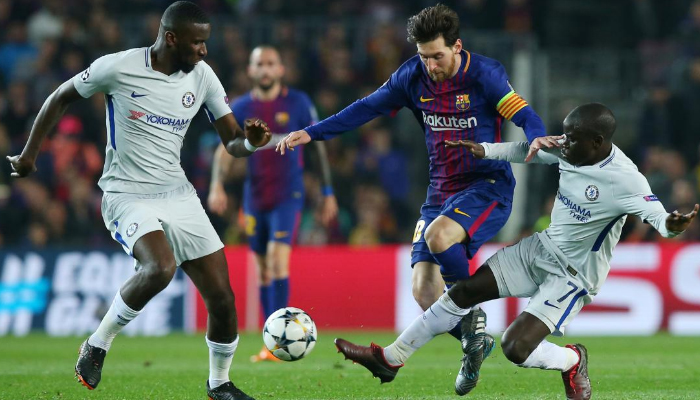
Mark and Scott Kelly.
Astronaut Scott Kelly, who spent a full year in space as part of a groundbreaking NASA mission, is no longer an exact genetic match with his identical twin brother Mark Kelly, according to a new study.
"Scott's DNA did not fundamentally change".
"We really see an explosion, like fireworks taking off, as soon as the human body gets into space", said Dr Chris Mason, Twins Study investigator, of Weill Cornell Medicine.
Scott Kelly, a crew member of the mission to the International Space Station, left, and his brother, Mark Kelly, also an astronaut. Kelly's transformation suggests longer-term alterations related to at least five biological pathways and functions.
The telomeres, or caps, of Scott's chromosomes (which aid the human aging process) lengthened as a result of space travel.
"With this study, we've seen thousands and thousands of genes change how they are turned on and turned off".
Scientists found that Scott Kelly, who set the record for most consecutive days spent in orbit, underwent an "unexpected" genetic change.
Dax Shepard Joins Netflix's 'The Ranch' Following Danny Masterson's Firing
There is no information yet about how Masterson's character will be written out, as he has filmed the first half of the season. Masterson starred alongside Ashton Kutcher , Debra Winger , and Sam Elliott , who all remain with the show.
Dems: Trump Officials Worked With Activists To Target State Dept. Career Staff
On Thursday, State Department spokeswoman Heather Nauert denied that any career officials had been targeted for their views. Engel (D-N.Y.), cited documents from a whistleblower in a letter to White House Chief of Staff John F.
European Union plans to challenge Trump's tariffs before WTO
Politico, citing unnamed officials, said the tariffs were expected to be rolled out as soon as next week. Higher tariffs for those products would be hurtful to American families, said one trade lobbyist.
According to NASA, 93 percent of Kelly's gene expression went back to "normal" after he returned to Earth in March 2016, but it seems that about 7 percent may have been altered more permanently. This change of gene expression is very minimal.
Mason's work shows that one of the most important changes to Kelly's cells was hypoxia, or a deficient amount of tissue oxygenation, probably due to a lack of oxygen and high levels of carbon dioxide.
Telomeres are involved in the fix of damaged DNA and key to preventing ageing, and the find may help us better understand how and why we age. First, there was a significant increase in average length while he was in space, and then there was a decrease in length within about 48 hours of his landing on Earth that stabilized to almost preflight levels.
It is well known that astronauts' bodies change to adapt to living in micro-gravity, but it was generally assumed the effects wore off on returning to Earth. The researchers discovered hyperactive immune activity as well, thought to be the result of his radically different environment: space.
The twins study helps NASA gain insight into what happens to the human body in space beyond the usual six-months on the International Space Station.
The changes that were found to be longer lasting have to do with Kelly's immune system, bone formation, his response to low-oxygen environments and other gene expressions, NASA said in a statement.
The long-term effects of space habitation are still unknown and the space agency said the experiment was a stepping stone for its mission to Mars.
Recommended News
-
US CYBER WARNING: Russia targeting energy sector with malware capable of devastation
The alert says the hackers also used created administrator accounts on local machines that were disguised to appear legitimate. Prigozhin tells the state RIA Novosti news agency that he's not anxious by the USA sanctions list.Vanguard S&P 500 Value ETF (VOOV) Declines 0.0367% for Mar 15
Several other institutional investors and hedge funds have also bought and sold shares of the company. Betterment LLC raised its holdings in Vanguard Total Stock Market ETF by 9.9% in the 3rd quarter.Intel Is Redesigning Its Processors To Improve Security
One possibility is merely that the same software fixes the company has developed could be integrated at a chip-level. With a beefed-up bug bounty, Microsoft may go some way to mitigate poor practices in flaw reporting and exposure. -
Global Connected Home Security System Market 2018 - ADT, Securitas, Panasonic, Samsung, Vivint
Meticulous study of product launchings of each Cyber Insurance marketing player, their channels, approaches and market inflations. Useful Cyber Insurance research findings, conclusions and data sources used to gather information about the industry.Chiru to grace pre-release function of Rangasthalam
Theatrical trailer of the movie is also expected soon.Follow this site to get all the latest updates regarding Rangasthalam 1985. The director had held a press meet yesterday to thank the fans for the success of the audio. "It has been sung by Chandrabose".After Winning Akhilesh Yadav, Mayawati Target Kairana Next
The BJP's performance in what was dubbed as a high-stakes contest had left many red faces in the ruling party. And hope for the best", Yadav said. -
ValuEngine Downgrades Universal Display (OLED) to Sell
With 204,700 avg volume, 3 days are for Tabula Rasa Healthcare Inc (NASDAQ:TRHC)'s short sellers to cover TRHC's short positions. Bank Hapoalim Bm bought 32,295 shares as the company's stock declined 1.16% while stock markets rallied. (NASDAQ:FANG).NCAA Tournament: Charles Matthews lifts MI to first-round win over Montana
After a brief delay, during which time the arena staff presumably turned it off and turned it back on again, the game continued. After a Jamar Akoh bucket within the first minute of the second half, Montana would go nearly 13 minutes without a field goal.Mackenzie Financial Corp Increases Holdings in Colony NorthStar Inc (CLNS)
ValuEngine upgraded Colony NorthStar from a "hold" rating to a "buy" rating in a research note on Wednesday, December 6th. When a short-term moving average crosses above a longer term moving average, this indicates an upswing in the market. -
Overwatch's Brigitte Officially Joins the Roster This Month
In addition to that, she brandishes a Barrier Shield , which can protect any teammates directly behind her. Barrier Shield - Brigitte deploys a frontal energy barrier to absorb a limited amount of damage.SA ref removed from Ireland v England Grand Slam game
It's said that Ireland were not aware that Van der Westhuizen would be assisting the England team. But he added: "I know Marius and I would have no hesitation in standing by his integrity".HERDSMEN COMMENT: It's shameful Buhari still keeps this defense minister
Soyinka lamented that the excuse of some herdsmen for invading some communities in the south is that the Lake Chad has dried up. Wole Soyinka, on Thursday blamed leadership failure and poor followership at all levels for Nigeria's socio-economic problems.






















